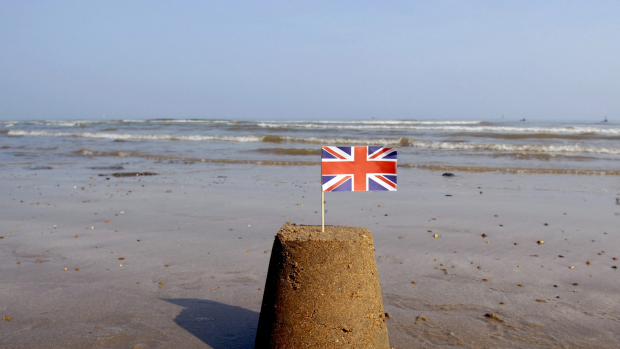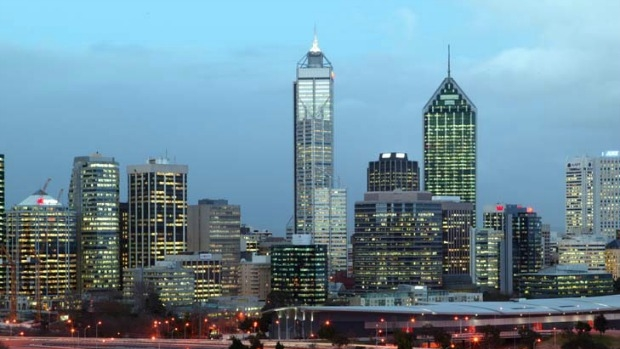A Curtin University demographer has examined how the boom changed Perth's most vital resource - its people.
Writing in a new book, Planning Boomtown and Beyond, Amanda Davies, senior research fellow at Curtin's School of Built Environment, said Perth was a unique city.

"Think of London and New York," she said.
"Most major cities don't feel the impact of a resources cycle. We are heavily dependent on both that and agricultural cycles. Commodity prices and droughts are major changes that affect us, but so does any flux in major industries such as wool, industry, timber.
"Did the boom allow us to get to a position of maturity, and not go through another real bust period? Is there enough underlying economic activity to make it a profitable and interesting place to live?"
She said each researcher that contributed to the book looked at different dimensions of the boom and how WA could stabilise things for the future, covering the connections Perth had developed as an international resource hub, who got what economic benefits from the boom, the formation of new businesses, the role of indigenous people, the meaning of suburbia and changes to the 'Great Australian Dream', and how Perth was progressing overall in its plans for transport, infrastructure, water and sustainability.
We are young
"We aren't aging as fast as other Australian cities," Dr Davies said. "We talk about ageing populations a lot and Perth's is still ageing, but is actually quite low on the spectrum. We attracted a lot of people in their 20s and 30s to Perth, both in terms of international and interstate migrants .... during the boom. The impact has been a lower rate of ageing.
"It means we aren't facing those same issues of ageing as quickly as, say, south east Queensland. We have a lower 'dependency ratio', meaning the number of people who can work compared to the number of people who can't. People in Perth have plenty of years left in their work life that can contribute to growing the city. That young workforce can be thought of as capital, as a resource."

We are young Photo: File image
We are smart
Dr Davies said many of those who moved into Perth during the boom had tertiary qualifications and had increased the education level of the entire community. She said when you looked at economies across the globe that were advancing, high levels of education were usually a common factor.
"It's interesting to see whether we will retain that," she said.

The mining boom attracted a lot of people with a bachelor's degree or higher. Photo: Andrew Quilty
We still have a LOT of mining workers
Dr Davies said despite the mining decline Perth still had a "massive over-representation" of people employed in the sector – 2.5 times more than across the rest of Australia, and that was not even counting all the industries associated with mining.

The mining industry can't be discounted as an employer. Photo: Erin Jonasson
They have their own language
Dr Davies said the Perth vernacular stood out. Phrases common here – FIFO, high-vis – were not common elsewhere in Australia. People talked about their 'swing', and they meant their work roster, not backyard toys.
Perth people had also gone beyond saying "going to Bali" and now tended towards the specific. "They say Ubud, or they discuss the particular parts of Bali, because going to Bali for holidays is normalised to an extent that is not the case elsewhere," Dr Davies said.
"These cultural factors are not well understood elsewhere in Australia. You build a up a picture, see how we are moving apart and gaining these unique characteristics. Combined with Perth's isolation on the Indian Ocean rim you start to get towards why there is this WA identity."

We're brought up on Bali. Photo: File image
Britons, South Africans really want in on that identity
Dr Davies said the number of people wanting to emigrate to Perth from the United Kingdom and from South Africa had been one thing unaffected by the mining boom. Perth, particularly the northern beachside suburbs, was still the number one destination for UK migrants and neither the boom or the bust had changed it. It was a similar story for the other dominant migrant group, from South Africa. "This supports the idea that people mainly move for lifestyle reasons," Dr Davies said.

Perth is still the number one emigration destination for Britons. Photo: File image
We are big... no wait, small
"We had the fastest population growth for quite a number of periods of any place in Australia, but it was driven by migration," Dr Davies said. "Now various parts of the city have declining populations and we are looking forward to the next Census to see if that stabilises. We are not attracting people from the east coast; we are losing more than we are attracting."

Perth has grown, but can it sustain that growth? Photo: Erin Jonasson
Will Perth be OK?
"When you're trying to put a picture together of how WA is different from other places, it's the combination of lots of little indicators you look for," Dr Davies said.
"Increasing educational attainment, stabilising of the ageing rate, you add these all together. Overall it means we have a very productive workforce for quite some time in the future and that we have increased the capacity of our workforce over time.
"Adding to that our unique culture and diversity, we have the capacity to be an economically advancing state. But we are also isolated. It's hard to say what will play out."



0 comments
New User? Sign up